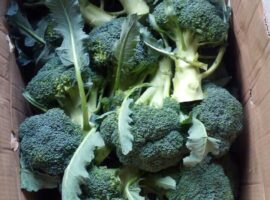Many individuals have cast doubts over the superiority of organic food over its conventional counterpart. The Journal of Alternative and Complimentary Medicine of USA conducted a review of 41 published studies comparing the nutritional value of organically and conventionally grown produce. It was concluded that several nutrients were significantly higher in organic food crops. On average, organically grown foods provide: 21.1% more Iron, 27% more Vitamin-C, 29.3% more Magnesium, 13.6% more Phosphorus. It has also been found that out of the 20 essential amino acids, organic wheat, corn, barley and soya bean had significantly more no. of amino acids than their non-organic counterparts. Apart from this, presence of chemical pesticides and fungicides in conventional food is a major area of concern. Basmati rice exported from India was rejected by the US government due to high residues of pesticides like ethamidophos, profenfos, prothioconazole, tebufenozide, thiophanate-m and triazophos. This was established because importing agencies have access to advanced laboratories where we can check pesticide residues in ppm parameters. A common man does not have access to such laboratories. Therefore, the food served on his plate is certainly under question. Extensive use of urea leads to presence of nitrates in the food samples which inhibit the transport of oxygen in blood to our cells. It is universally established that organic food is more soft, wholesome, tasty and takes less time to cook. No wonder, it is the choice of food connoisseurs and celebrity chefs.







